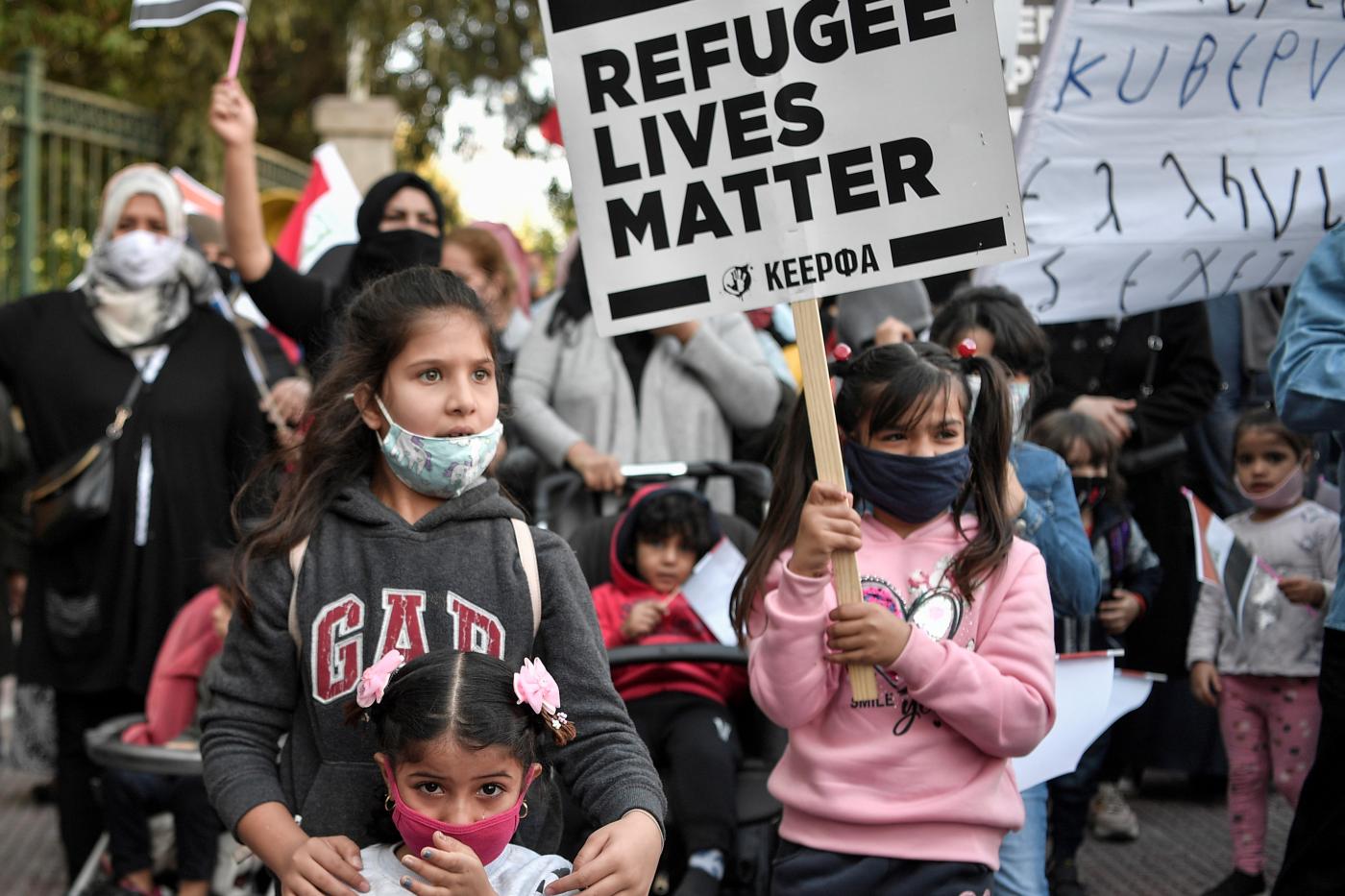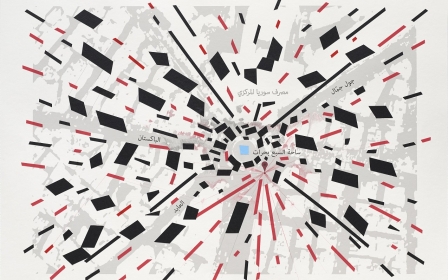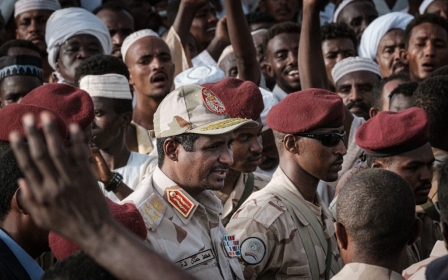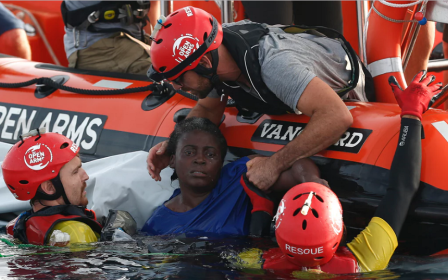How the Covid-19 vaccine story fused with Europe's 'model migrant' narrative
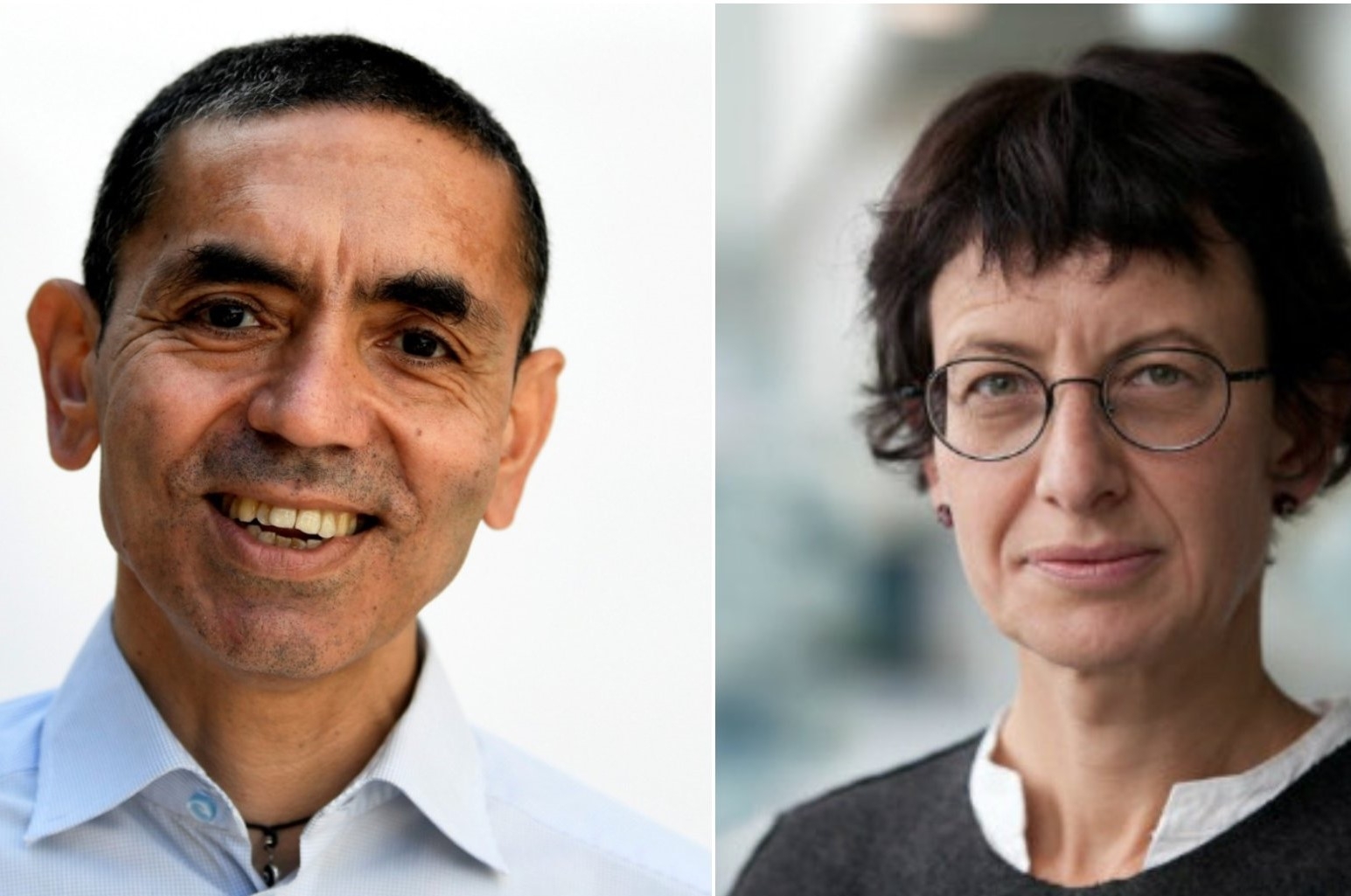
In early November, researchers Ugur Sahin and Ozel Tureci had the world’s attention. Their company BioNtech, based in Mainz, Germany, had succeeded in developing a vaccine for Covid-19.
Everyone now could see light at the end of the pandemic tunnel.
Amidst endless tributes on social media, some emphasised the couple's "successful integration": both were children of Turkish migrants in Germany.
The conservative business site Focus stated: “With this couple, Germany has a shining example of successful integration.” Swedish daily newspaper Svenska Dagbladet seemed to agree "...the largest breakthrough in the fight against the pandemic - but also a story of successful integration."
The model migrant
New MEE newsletter: Jerusalem Dispatch
Sign up to get the latest insights and analysis on Israel-Palestine, alongside Turkey Unpacked and other MEE newsletters
The "model migrant" narrative is familiar. It draws upon the longstanding integration discourse across Europe, in which minorities are valued and welcomed according to deservingness and loyalty. In 2020, media-constructed images depicted Syrian refugees as more deserving of national support, thereby marginalising the worthiness of other refugees.
The 'model migrant' narrative draws upon longstanding integration discourses across Europe, in which minorities are valued and welcomed according to deservingness and loyalty
Such perspectives are also tangible to the notion of compassion-driven support for migrants and refugees – that is to say, support which is limited by the compassion of the people in the hosting nation. In a time when racialised minorities are associated with terror and criminality in the public imaginary, any form of compassion may be positive or at least less damaging.
But as argued by several scholars, the compassion-driven support for refugees requires a power imbalance between the helper and the helped, between the citizen and the migrant. Compassion-driven support is thus an ineffective strategy to address inequalities as it further corroborates the idea of the nation as "doing good" unto "deserving migrants", obfuscating their human rights.
In the UK, Priti Patel - the home secretary heralded as a success of the UK's diversity - criticised the immigration policies which facilitated the migration of her very own family, due to their apparent toll on the British economy. Like in Sweden and Germany, the message remains the same: exceptionally productive and loyal immigrants may earn their place in this society. Others are not welcome.
The 'othering' process
It is unsurprising then how quickly the Tureci-Sahin couple's success was spun within the story of Germany's allegedly successful integration history. Dr Tureci was born in Germany and Dr Sahin arrived in Cologne when he was four years old. Both were raised and lived in Germany all their lives. But their actual migration history is irrelevant in this case.
Your success is measured by your ability to become 'like us'
Rather, Germany is rewarded with the opportunity to celebrate their professional merits as a success for integration because, simply put, the couple - racialised minorities and Turkish-Germans to boot - embody the ideal for all racialised minorities. In doing so, a message is sent: when you are successful, you are "like us". When you fail, you represent "the Other".
Your success is measured by your ability to become "like us". Your achievements are because we have welcomed you and helped you to become like us. Your success is thus ours. Ultimately, it is a story of ethnonationalism and a sign of growing discourse separating the "West" from the "Rest".
The process of “othering” has been described as "corrosive to the sense of recognition, safety, and identity of those perceived as other" and the effects of the process have been described as detrimental to well-being and health.
Good immigrant, bad immigrant
The nationalist rhetoric dividing good immigrants from bad is one of many divides imposed on racial minorities. There is the good Muslim/bad Muslim narrative, which imposes an uncertainty where Muslim loyalties truly stand.
Such differentiation is also articulated in how racialised black communities in North America are viewed to be in support of riots when speaking against police violence, or when lawyers in support of asylum seekers are portrayed to be in support of human trafficking. This narrative produces absurd interactions whereby a Muslim lecturer was recently asked by a senior counter-terrorism professor to first acknowledge that the killing of innocents is never justified, then tagging both the lecturer and his employer to coax his views on the killings in Nice.
In all aspects of life, a line between migrants and other parts of the population is drawn. Even in death, differentiation takes place.
When explaining the higher mortality rate within the Swedish-Somali population during the Covid-19 pandemic, a leading Swedish politician highlighted “local and cultural patterns”, “potential culture-specific reasons”, distrust in authorities and illiteracy, rather than exploring the context in terms of socio-economic position, experiences of discrimination within the healthcare system, and labour market participation which perhaps limited the possibilities of social distancing.
Two-tier citizenships
This stands in contrast to the high mortality rates within public elderly care which were almost exclusively explained in media by structural and organisational accounts. All these divides reveal how common-sensical it has become to question parts of the population according to ethno-nationalist and capitalist registers, insisting upon a script of model citizenry which rests on a bulwark of integration, productivity and loyalty.
It is made explicit when debaters in defence of migrants argue that young people should be allowed to stay in the country to 'reap the benefits of our investments'
The attention paid to Sahin and Turecis sadly illustrates the burden immigrants and children of immigrants carry in today’s nationalist climate. In Sweden, it is even made explicit when debaters in defence of migrants argue that young people should be allowed to stay in the country to "reap the benefits of our investments”.
Minorities are reduced to either a value or an expense to the nation. What should be an issue of human rights becomes a matter of economic transactions. What the state invests in education and social support must demonstrate its benefits to the state -ideally, in terms of personal sacrifice or extraordinary achievements.
This signals different norms for different groups - two-tier citizenship. For racialised minorities living in nationalist political climates, their migration histories are inescapably a part of this. This places them perpetually on the boundary of the nation - an "Other" to the national imaginary. And this should be a tremendous cause of concern for any state.
Liberal celebrations of successful stories of integration place in doubt the belonging of those racialised minorities who were not privileged enough to be able to prove their value to society. This then leads us to further dehumanise those who are marginalised and vulnerable in our communities. And this is a wicked road to go down.
Karima Viksten-Assel is an M.D and child-and adolescent psychiatrist in Stockholm, Sweden.
Tarek Younis is Lecturer in Psychology at Middlesex University, the UK.
Baharan Kazemi is a PhD candidate in social work at the University of Gothenburg, Sweden
Cécile Rousseau is a Professor at the Division of Social and Cultural and Psychiatry at McGill University in Montreal, Canada.
Maria Sundvall is an M.D and retired psychiatrist in Stockholm, Sweden.
The views expressed in this article belong to the authors and do not necessarily reflect the editorial policy of Middle East Eye.
Middle East Eye delivers independent and unrivalled coverage and analysis of the Middle East, North Africa and beyond. To learn more about republishing this content and the associated fees, please fill out this form. More about MEE can be found here.


